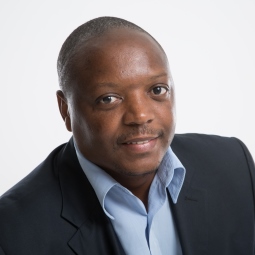ICT research on the agenda: African and European perspectives and plans shared
Information and communications technology (ICT) is a potent tool for socio economic upliftment in Africa. This is the premise upon which presentations, discussions and debates at the 4th EuroAfrica Cooperation Forum on ICT Research will be based. Some 200 delegates from over 10 African countries and various European destinations will attend the event from 14 to 15 November 2011 at the Cape Town International Convention Centre.
Information and communications technology (ICT) is a potent tool for socio economic upliftment in Africa. This is the premise upon which presentations, discussions and debates at the 4th EuroAfrica Cooperation Forum on ICT Research will be based. Some 200 delegates from over 10 African countries and various European destinations will attend the event from 14 to 15 November 2011 at the Cape Town International Convention Centre.
Hosted by the Government of South Africa through South Africa’s Department of Science and Technology (DST) and the CSIR Meraka Institute, this event will primarily aim at strengthening and supporting collaborative research on ICT between Africa and Europe, but also at exploring how to support efficient and innovative ICT public-private partnerships.
R&D intensity and vibrant innovation activity, as well as advanced human capacity are associated with a healthy ICT ecosystem in which ICT is produced, diffused and adopted in the economy and society. Against this background, the DST has promoted research, development and innovation (RDI) in ICT through its ICT RDI Strategy adopted in 2006.
Subsequent surveys have shown that while progress has been made, there are still concerns regarding South Africa’s talent pipeline in ICT RDI. Other challenges are the scarcity of focused funding efforts, as well as the lack of coordination and cooperation amongst institutions involved in ICT RDI. More is needed to ensure that South Africa’s current and future ICT RDI capabilities are developed to address these market opportunities.
Other Africa countries have also recognised that science and technology, and ICT are key vectors for bridging the scientific and digital divides, for reducing poverty, ensuring a socio-economic development and for reaching the Millennium Development Goals.
The EuroAfrica-ICT Initiative (funded by the European Commission, the Directorate General Information Society and the MediaFramework Programme 7 (FP7)) stands for a strengthened and enhanced cooperation on ICT research between the two continents. It aims to enhance the number of collaborative research projects (in the ICT field) between Europe and Africa (particularly under EC Framework Programmes). It is a platform for discussions (joint research priorities, best practices, search for partners, cooperation events, community of researchers, helpdesk and guidance) and for raising awareness on FP7/ICT cooperation.
As such, the 4th EuroAfrica Cooperation Forum on ICT Research provides the opportunity for discussions on a range of topics:
E-health; linking ICT policies, developments and regulations to market opportunities; taking RDI results to market; local innovation and technology transfer; e-learning and e-skills; research and education networking; joint ICT priorities and ICT deployment; ICT for environmental sustainability and energy efficiency; mobile technologies and mobile applications; building and strengthening capacities in ICT research; building international collaboration on trustworthy ICT; and guidance for FP7 newcomers.
Chair and speakers have been drawn from a range of local, African and European organisations, including research institutions, government and industry. The keynote speaker on day 2 (15 November 2011) is John Wood, Secretary General of the Association of Commonwealth Universities and Chairman of the ERA (European Research Area) Board, who will speak on Vision of the future of the ERA and how it interacts with the outside world.
EuroAfrican cooperation projects have already emerged in the past years and many have developed successfully for the mutual interest and benefit of involved stakeholders from both regions. A selection of these success stories has been published at http://euroafrica-ict.org/category/fp6-fp7-success-stories. The following progress has also been reported:
- IST projects under FP6: a total of 16 participations (total funding of 1,4 million euro) have been recorded for sub-Saharan African organisations over the whole duration of FP6.
- Over the first three years of the FP7 research programme (2007-2009), 56 (13.5%) of 412 participations in research projects of organisations from the African continent are in the ICT field.
More about the 4th Euro-Africa Cooperation Forum on ICT Research:
Held under the aegis of the EC, the AUC and the Africa-EU Strategic Partnership, this major event is the 4th of a series of very successful conferences organised by the Euro-Africa-ICT EU-funded project:
1st Euro-Africa Cooperation Forum on ICT Research: March 25-26, 2009 – Brussels, Belgium
2nd Euro-Africa Cooperation Forum on ICT Research: February 4, 2010 – Addis Ababa, Ethiopia
3rd Euro-Africa Cooperation Forum on ICT Research: December 7-8, 2010 – Helsinki, Finland


